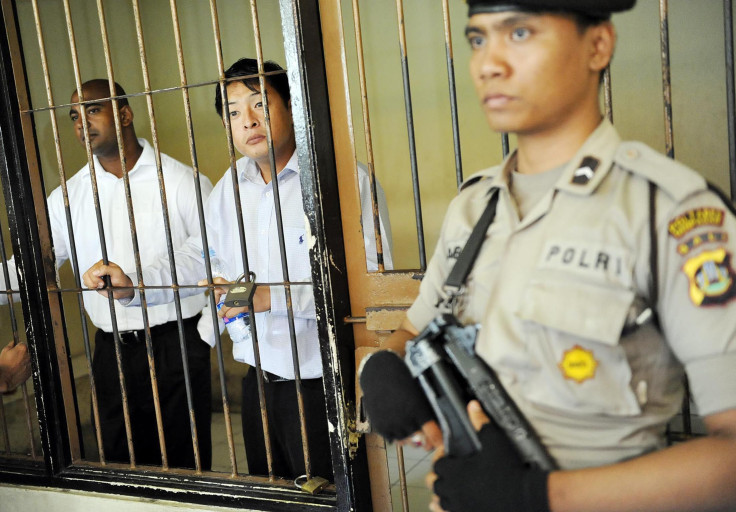Bali Nine Executions: Indonesian Court Postpones Clemency Appeal Hearing For 2 Australian Convicts

The impending execution of two Australian nationals convicted of drug trafficking in Indonesia has been delayed yet again, after a local court on Thursday postponed hearing a clemency appeal. The Indonesian government has rejected earlier requests for clemency for Andrew Chan and Myuran Sukumaran, the alleged ring leaders of the Bali Nine group.
In the upcoming hearing, lawyers for the two convicts are expected to provide more information to the court in a bid to overturn the government's rejection of an earlier clemency plea. The hearing has now been pushed forward by a week to March 25, and the court will not decide the case until after April 1, media reports said. Indonesia's tough stance against drug trafficking, which it typically punishes with the death penalty, has been criticized by several countries, including Australia, and international human rights groups.
"The hearing for both cases has been delayed until March 25 for our side to submit evidence. March 30 will be their (the defense) turn," Leonard Arfan, the convicts' lawyer, told Reuters.
Chan and Sukumaran have been transferred from the Kerobokan prison in Bali to the prison island of Nusakambangan, where the executions are scheduled to take place. The two are among a group of 10 people convicted of smuggling drugs and scheduled to be executed by firing squad. The other convicts reportedly include citizens of France, Brazil, the Philippines, Ghana, Nigeria and Indonesia. The Australian nationals were arrested in 2005 and sentenced to death in the following year for leading a heroin-smuggling operation.
Australia has been trying to negotiate a clemency deal for Chan and Sukumaran, who were originally scheduled to be executed in February. The country has also offered to pay Indonesia prison expenses to incarcerate the duo in return for the latter exempting the duo from the death penalty. However, Indonesia rejected the offer last week.
"We emphasize that this is not an issue of negotiation," Armanatha Nasir, a spokesman for the Indonesian foreign office, said, at the time, adding: "This is upholding the law. If a country starts to negotiate law, that is a form of violation. So I emphasize that there is no negotiation."
© Copyright IBTimes 2024. All rights reserved.





















